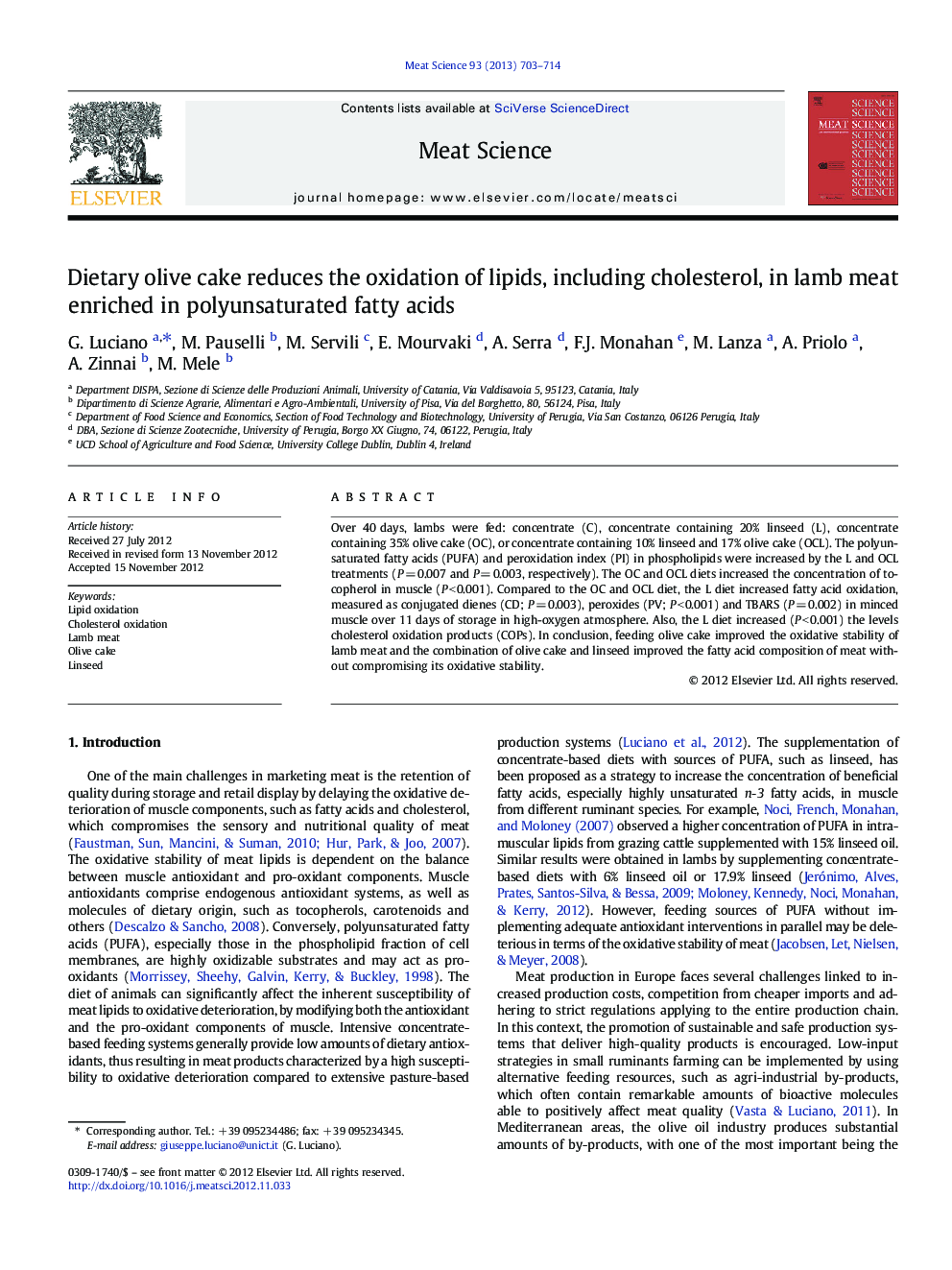| Article ID | Journal | Published Year | Pages | File Type |
|---|---|---|---|---|
| 5791789 | Meat Science | 2013 | 12 Pages |
Over 40Â days, lambs were fed: concentrate (C), concentrate containing 20% linseed (L), concentrate containing 35% olive cake (OC), or concentrate containing 10% linseed and 17% olive cake (OCL). The polyunsaturated fatty acids (PUFA) and peroxidation index (PI) in phospholipids were increased by the L and OCL treatments (PÂ =Â 0.007 and PÂ =Â 0.003, respectively). The OC and OCL diets increased the concentration of tocopherol in muscle (PÂ <Â 0.001). Compared to the OC and OCL diet, the L diet increased fatty acid oxidation, measured as conjugated dienes (CD; PÂ =Â 0.003), peroxides (PV; PÂ <Â 0.001) and TBARS (PÂ =Â 0.002) in minced muscle over 11Â days of storage in high-oxygen atmosphere. Also, the L diet increased (PÂ <Â 0.001) the levels cholesterol oxidation products (COPs). In conclusion, feeding olive cake improved the oxidative stability of lamb meat and the combination of olive cake and linseed improved the fatty acid composition of meat without compromising its oxidative stability.
⺠Lipid oxidation in meat from lambs fed olive cake and linseed was studied. ⺠Dietary olive cake alone reduced cholesterol and fatty acids oxidation in lamb meat. ⺠Dietary linseed alone promoted fatty acids and cholesterol oxidation in lamb meat. ⺠Meat lipid oxidation was reduced by combining olive cake and linseed in the diet.
